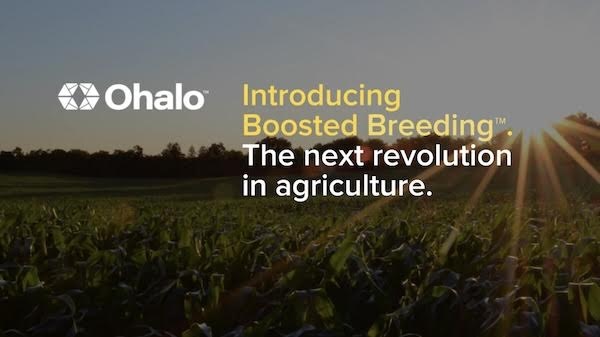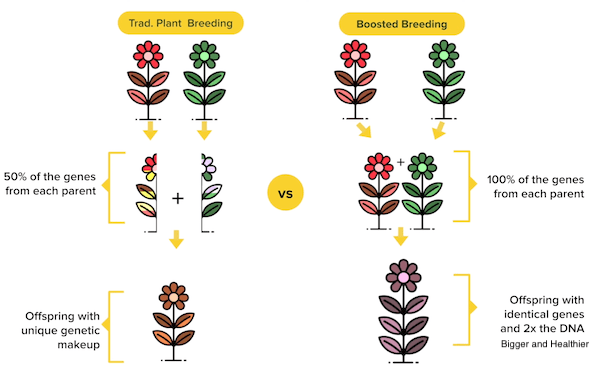In the annals of agricultural innovation, few breakthroughs rival the significance of what Ohalo is bringing to market, the world’s first true potato seed. This milestone promises to transform not just how potatoes are grown, but the economics, sustainability, and resilience of one of humanity’s staple crops. As Ohalo moves into production with this technology, the company stands at the threshold of a new era for farmers and the global food supply.For potatoes, this means that for the first time ever, farmers can plant a true seed, tiny, disease-free, easy-to-store seeds that deliver uniform, high-performing crops. No more clunky tubers, no more genetic lottery, no more waiting years for new varieties to spread through the supply chain. The implications of Ohalo’s true potato seed are profound, as true seeds are free from the pathogens that often hitchhike on tubers, slashing the risk of devastating crop failures. Also, a few grams of true seed can replace thousands of pounds of seed potatoes, cutting storage and shipping costs by up to 99% and opening up markets previously unreachable by traditional supply chains.
Potatoes are the world’s third most important food crop, trailing only rice and wheat as a source of calories. For centuries, however, the way potatoes are propagated has remained stubbornly old-fashioned. Instead of planting seeds, farmers have relied on “seed potatoes,” meaning chunks of tubers from the previous harvest. This method is fraught with challenges as seed potatoes are bulky, expensive to store and transport, and highly susceptible to disease. Each year, up to 20% of a potato farmer’s revenue can be consumed by the costs and losses associated with this system.
The logistical headaches are matched by biological limitations. Because each seed potato is a genetic clone, the industry has struggled to introduce new traits, such as higher yields, disease resistance, or climate resilience, at the speed demanded by a changing world. In an era of population growth, climate volatility, and resource constraints, the need for a better solution has never been more urgent.
Founded in 2019 by Dave Friedberg and CTO Dr. Jud Ward, Ohalo was built on a radical premise: What if you could reengineer the way plants reproduce, making it possible to breed and plant true seeds even in crops like potatoes, which have always relied on vegetative propagation? Backed by more than +$100 million in funding and years of stealth-mode research, Ohalo’s team set out to answer this question. The answer came in the form of “Boosted Breeding,” a groundbreaking technology that uses CRISPR gene editing and proprietary proteins to alter the reproductive circuits of parent plants. In traditional breeding, offspring inherit a random half of each parent’s genes. Ohalo’s process, however, disables the mechanism that splits the genome, ensuring that both parents pass on their entire genetic package. The result is that every seed is genetically identical, carrying all the desired traits from both parents.
Ohalo’s Boosted Breeding delivers plants that are not only genetically uniform but also exhibit insane yield gains, according to Friedberg. Field trials have shown dramatic increases in both the size and reliability of harvests. New varieties can also be developed and deployed much faster, allowing agriculture to respond nimbly to threats like emerging diseases or changing consumer preferences. Now, with less disease, lower input needs, and more efficient production, the environmental footprint of potato farming shrinks.
Ohalo’s story began in the venture foundry The Production Board, where Friedberg, already known for founding and selling The Climate Corporation, joined forces with Dr. Ward, a molecular biologist with deep experience in crop genetics. The company operated in stealth for nearly five years, pouring over $50 million into decoding the intricacies of plant reproductive biology and developing the proprietary proteins that underpin Boosted Breeding. In 2024, Ohalo emerged from stealth, announcing not just the technology, but regulatory milestones as well. The USDA’s Animal and Plant Health Inspection Service reviewed and approved Ohalo’s gene-edited potato for commercial cultivation in the U.S., finding it posed no greater plant pest risk than conventional varieties. This regulatory green light cleared the path for Ohalo to move from research to real-world impact.
The company is already generating revenue and is scaling up both internal production and partnerships with industry leaders. Ohalo’s approach is to supply both seeds and finished products, with commercial trials underway and a broad rollout expected in the next 1–2 years. The company’s ambitions don’t stop at potatoes. Ohalo is applying Boosted Breeding to other crops, including strawberries, corn, and more, aiming to unlock similar gains in yield, quality, and resilience across the agricultural spectrum.
The impact could be transformative not just for large-scale producers but for smallholder farmers in developing regions, where access to disease-free starting material and affordable logistics can be the difference between subsistence and prosperity. As the world’s first true potato seed moves from the lab to the field, Ohalo’s story is just beginning. Learn more about Ohalo and what Boosted Breeding is all about HERE. (Source: Agfundernews, Potatonewstoday)









